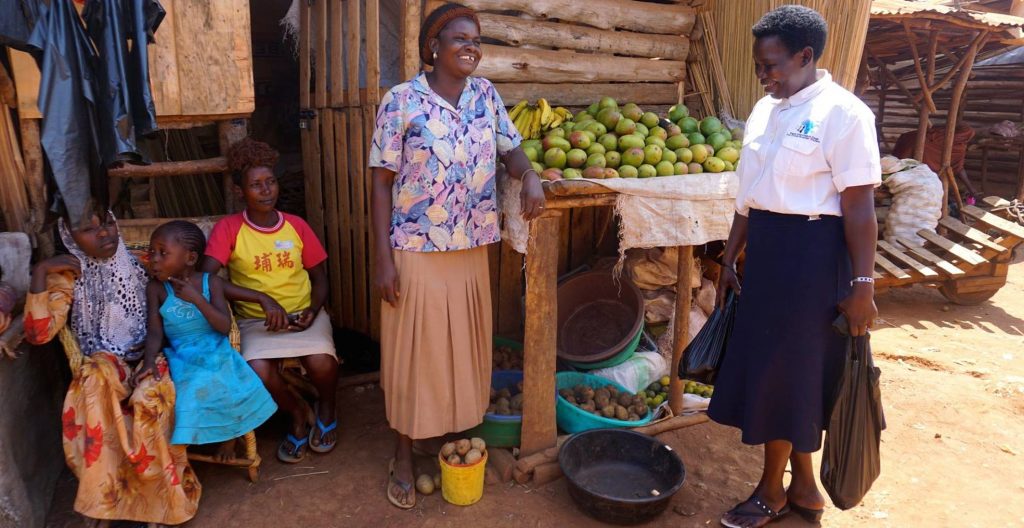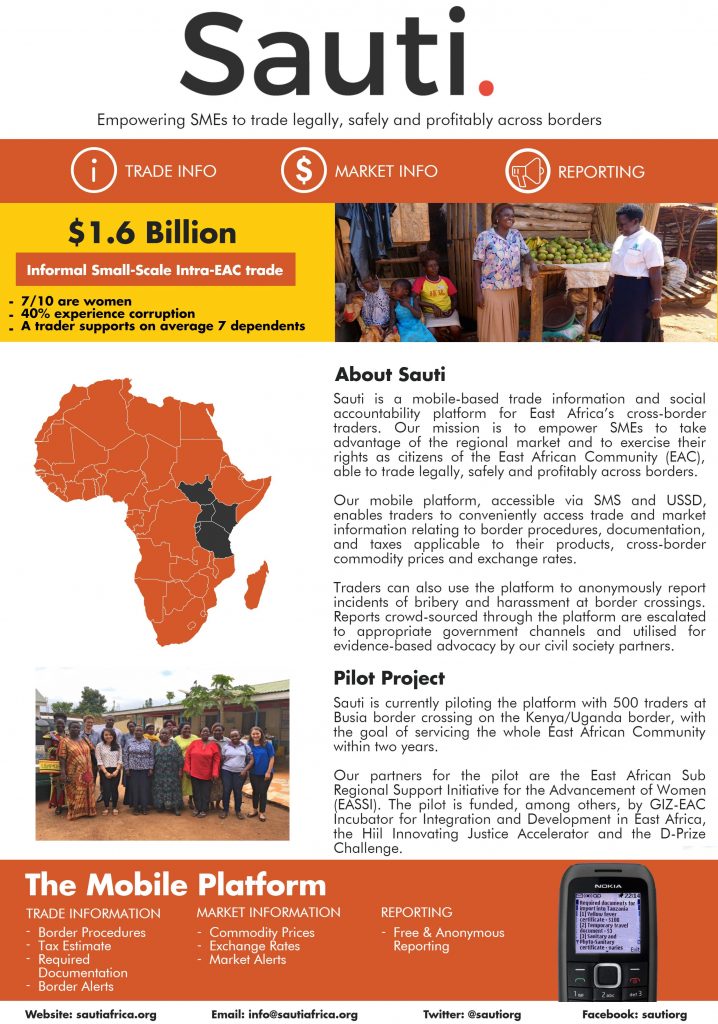Among the cacophony of honking lorries and speeding motorbikes that define East Africa’s borders, it is easy to overlook small-scale traders that call this vibrant space their daily workplace. While not the loudest noisemakers at the border, small-scale traders represent a significant segment of cross-border trade within the East African Community – estimated at $1.6 billion each year. And yet for many small-scale traders, working at the border poses distinct barriers to their enterprise. With the recent support from African Women in Technology and other partners, Sauti Africa is in a unique position to leverage mobile tech to address some of these challenges.
Take, for example, a trader like Annette: a single mother of two who takes goods from Kenya across the Busia border to sell in Uganda. She doesn’t have the luxury of looking away when her informal status makes her vulnerable to bribery, sexual harassment, unfair prices, impounding of goods and even the specter of imprisonment. As a woman, the odds of facing these challenges only increase, and are further exacerbated should she decide to use a panya (smuggling) route.
Across East Africa there are thousands of women like Annette; they represent 70-80% of cross-border traders. For two-thirds of traders’ cross-border trade it is the main source of income and, as a trader’s household includes on average 7 dependents, it is a vital means of survival for large segments of the population in East Africa.
While the EAC has taken great strides to provide trade agreements and protections that simplify customs and transit procedures, facilitate dispute resolution and guarantee safety of goods exchanged, and other measures which remove barriers to trade, many small-scale traders still face non-tariff barriers that affect their ability to trade legally and profitably across EAC borders.
Sauti Africa is specifically targeting small-scale traders’ access to information by providing a technological solution that leapfrogs over traditional or inadequate means of sensitization: a mobile-based trade information and social accountability platform for cross border traders.
Through their USSD and SMS-based platform (watch a demonstration video here), traders can access tailored information on border procedures and documentation requirements, receive an estimate of taxes and tariffs applicable to their products, as well as sign up to regular updates on recent changes to border procedures.
Traders can also access cross-border market information for commonly traded commodities and retrieve reliably sourced exchange rates. The platform also enables traders to anonymously report incidents of bribery and harassment at border crossing, enabling Sauti to gather better data for evidence-based advocacy on these issues.
In pursuing the realization of it’s trade and social accountability platform, Sauti has been generously supported by organizations such as African Women in Technology, the prestigious D-Prize Challenge for innovative distribution solutions to poverty alleviation, the London School of Economics Social Enterprise of the Year Award, the Hiil Innovating Justice Accelerator, and the GIZ-EAC Incubator for Integration and Development. This support has enabled them to engage in a rigorous process of customer discovery to highlight specific areas of information asymmetry for cross-border traders and are now guiding the development of the platform. You can find their recently published Customer Discovery Report here.
As Sauti prepares to launch their platform in the coming months, they will continue to strive towards the goal of empowering cross border traders like Annette to exercise their rights as citizens of the EAC – able to trade legally, safely, and profitably across borders and stand up for their rights with a loud and clear voice.

If you would like to get in touch, you can find Sauti on Twitter, Facebook, Linkedin or through their Website.
Article contributed by Julia Lipowiecka winner of the AWIT Kenya pitch competition



